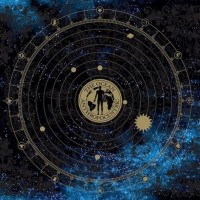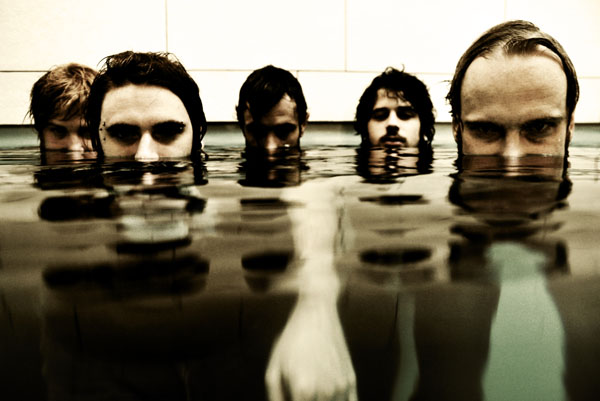Every Friday, The Metal Examiner delves metal’s endless depths to present the genre’s most important and exciting albums.

The Ocean: Anthropocentric (Metal Blade, 11/9/10)
Since its inception, German post-metal collective The Ocean has relied on over-the-top lyrical ambition as much as straight-ahead musical progression. Earlier this year, the group began its long-form, anti-fundamentalism diatribe with Heliocentric. With that album’s counterpart, Anthropocentric, The Ocean brings its musings full circle, and brings a unique (if sometimes difficult) vision of metal back with it.
The album’s opening title track fires full-bore with pounding toms and a throat-shredding roar, but by the end of its nine minutes, the primal rage has yielded to a swaying, almost anthemic coda. The obvious comparison is to peers Isis or 3, but at its heart, the band more closely follows Iron Maiden — not just because the group doesn’t hesitate to peel back the layers mid-song, but also because it doesn’t hesitate to remind listeners that its members read books (Charles Darwin, Richard Dawkins, and Fyodor Dostoyevsky, to name only the three overtly referenced authors).
But The Ocean goes a step further with its songwriting dynamics, not only switching tone and tempo but also switching between five vocalists to suit different deliveries. This may sound like an extreme measure, but the ever-shifting canvas of Anthropocentric’s tracks lends itself quite organically to rotating personnel. In some cases, such as the melodic prog of “Heaven TV,” singers are blended to form a third (or, more precisely, a sixth) voice, nicely augmenting The Ocean’s larger themes of space and expansiveness.
Though the lyrical content doesn’t back off its onslaught against Creationism and fundamental Christianity (representative lyric: “There’s no one here who knows it all”), Anthropocentric’s musical approach is much more nuanced. Melodic and tasteful in some places, spacey in others, abrasive in yet others, the guitars of Jona Nido and Robin Staps act as the de -facto tour guide of The Ocean’s purview. The rest of the band become less of an accompaniment and more of a foundation, giving the two guitarists an anchor at the end of a very long line.
At the core of Anthropocentric is the “Grand Inquisitor” trilogy (“I: Karamazov Baseness,” “II: Roots & Locusts,” and “III: A Tiny Grain Of Faith”), which neatly sums up The Ocean’s larger ambitions. The down-tuned sludge opening “Karamazov Baseness” sets up a pleasant, almost hushed bridge before bringing the hammer back down. In “Roots & Locusts,” the band shifts into thrash territory, but again saves melody for the middle section and draws to a near-doom coda. “A Tiny Grain Of Faith,” on the other hand, closes the trilogy in the total opposite direction with a down-tempo synth lead, violin, and surprise female vocals providing a pleasant breather.
In these three tracks (as throughout the entire disc), The Ocean proves willing to go to whatever lengths necessary to keep the listener focused, if not engaged. It’s a strange position to take, but one ultimately of the band’s own design: making thinking-person’s metal but not allowing the listeners to be alone with their thoughts.

